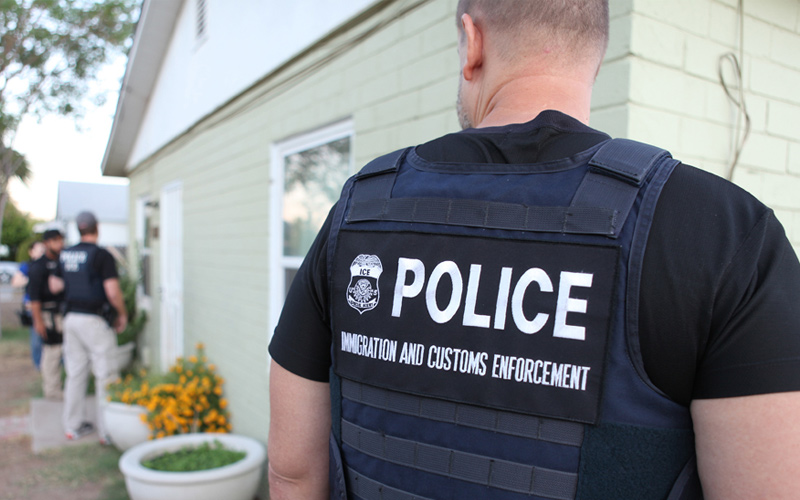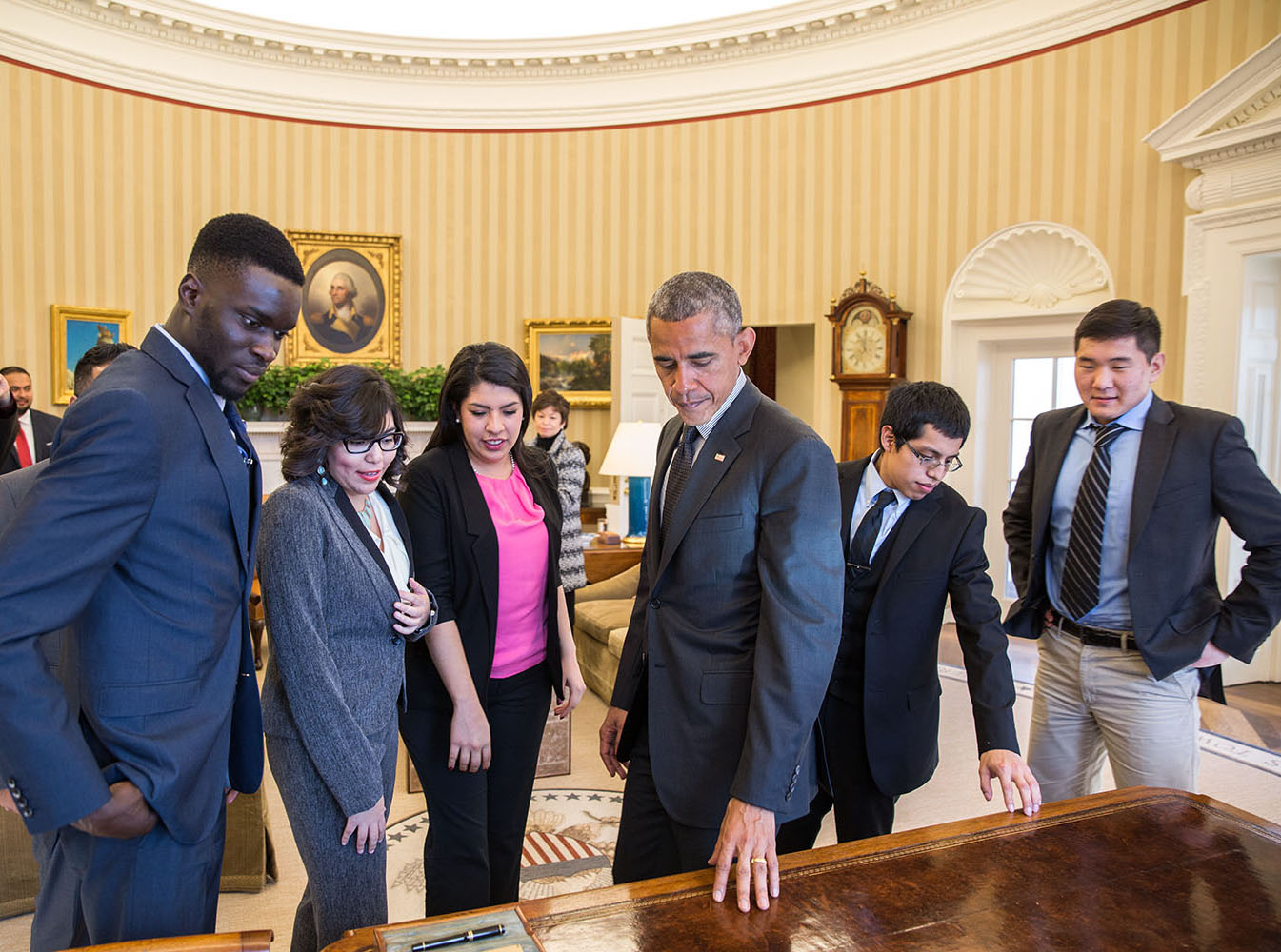This Unusual Graduation Photo Exposes Darks Truths About Deportation

By:
When undocumented immigrants settle in the United States and have children, those children automatically gain U.S. citizenship. But if their parents are subsequently deported, the path forward for these kids is often hazy and tumultuous.
 U.S. Immigration and Customs Enforcement/Wikimedia - wikimedia.org
U.S. Immigration and Customs Enforcement/Wikimedia - wikimedia.org
Angel Marin was 10 when his mother, an undocumented immigrant from Mexico, was arrested in April 2010. He and his siblings moved from couch to couch, staying with relatives, as they awaited the day their mother would return. But that day never came: Gloria Marin was convicted of being an accomplice to her boss, who stood accused of running a "drop house" in the U.S. where immigrants temporarily stayed after crossing the country's Southern border.
In fall 2012, the single mother was sentenced to 19 months in prison. After serving her sentence, she was deported to Mexico.
The Marin family's story is featured in a California Sunday article by Lizzie Presser. On Wednesday, the writer shared a photo of Angel who held a mock high school graduation ceremony at the U.S.-Mexico border earlier this week.
"Angel Marin's mom was deported to Mexico when he was 10," Presser wrote. "She couldn't go to his high school graduation this week, so he brought it to her."
Though Angel's impromptu graduation ceremony was unconventional, his status as the child of a deported immigrant is not. From 2009 to 2013, about 500,000 undocumented parents of children born in the U.S. were deported, according to a 2017 report from the Migration Policy Institute.
Children of deported undocumented parents suffer a wide range of hardships, the report found, including behavioral problems at school, with children acting out due to untreated depression and anxiety, housing insecurity, and economic difficulties.
Though U.S.-born children of undocumented immigrants are more likely to graduate high school than undocumented students (79 percent to 54 percent), they still graduate at lower-than-average rates overall. Psychological and financial problems—as well as confusion over legal status—can hold students in both categories back from pursuing higher education.
That's partly why the Obama administration introduced polices aimed at supporting undocumented students who were brought to the U.S. as children. About 700,000 "Dreamers" have enrolled in the Deferred Action for Childhood Arrivals (DACA) program, which protects certain them from deportation.
 White House - whitehouse.gov
White House - whitehouse.gov
But such programs don't offer such protections for the parents who bring their undocumented children to the U.S.
The future of the DACA program remains unclear, as Trump has at times defended the program but has also remained quiet as federal immigration enforcement officials have detained some Dreamers.
The threat of deportation looms over parents like Marin, threatening to separate them from their children without advanced notice. These types of deportations are nothing new, of course, but as President Donald Trump's administration moves to expand the criteria for what qualities an immigrant for deportation, experts predict more families will suffer similar fates.
